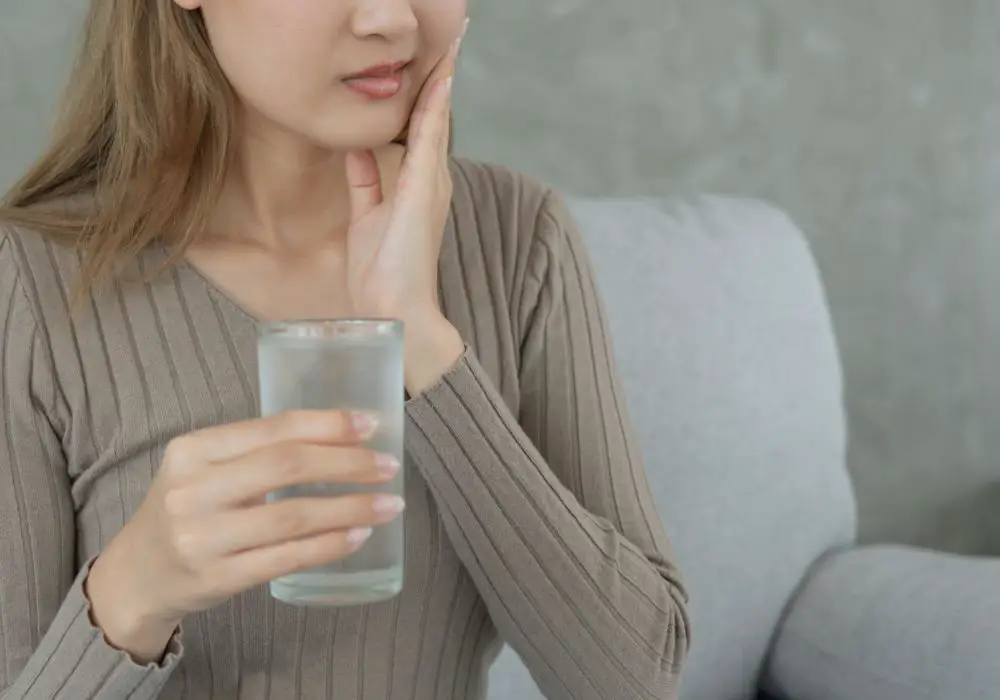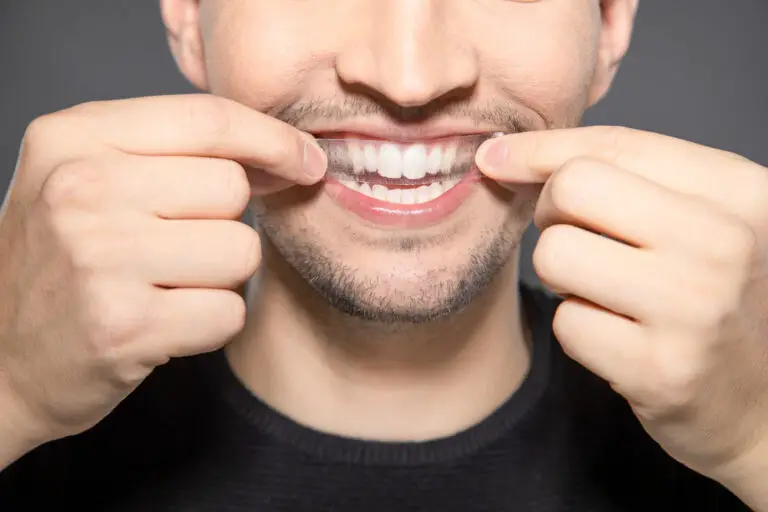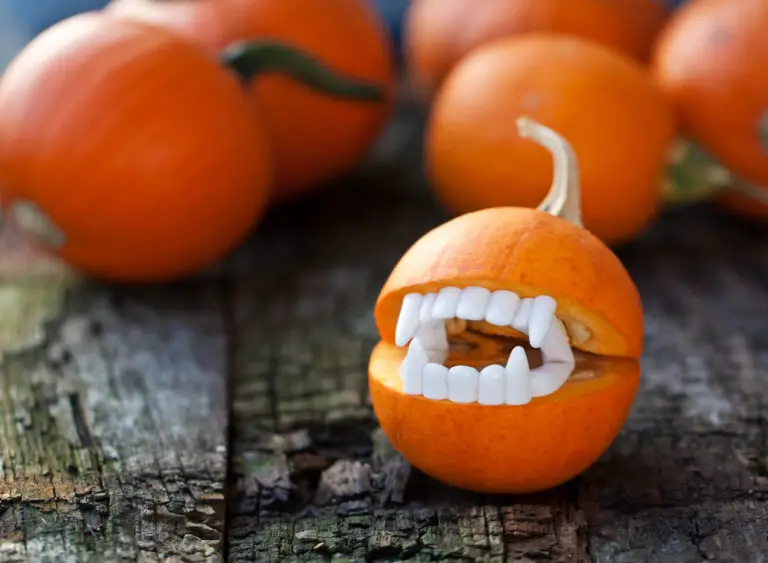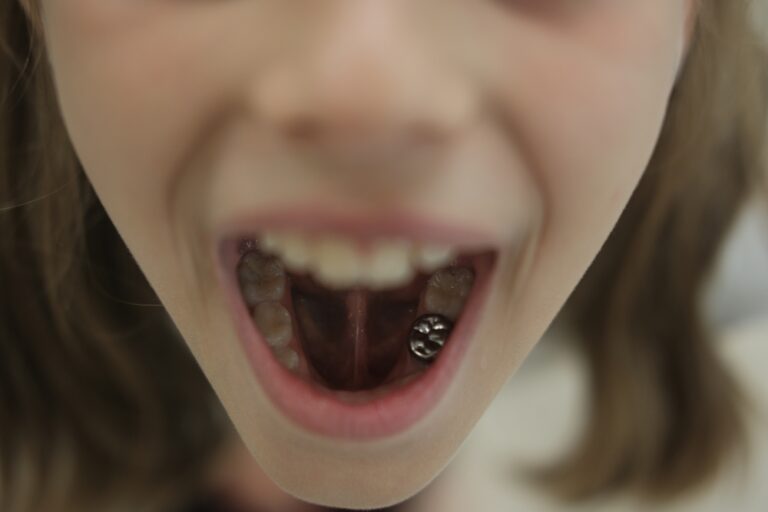What causes tooth sensitivity when chewing gum?
Tooth sensitivity when chewing gum is usually caused by exposure of the tooth’s dentin. The dentin is the layer of tissue underneath the tooth’s enamel outer shell. When the enamel erodes or recedes, the dentin becomes exposed and receptors are triggered, causing pain and discomfort.
Chewing gum can exacerbate tooth sensitivity in a few key ways:
Acids in gum erode enamel
Many gums, especially fruit or citrus flavored varieties, contain acids like citric acid or malic acid. These acids lower the pH in your mouth and can erode and damage tooth enamel over time with consistent chewing. This allows more dentin exposure and sensitivity.
The acids in gum interact with bacteria in your mouth, producing acids as a byproduct that further demineralize and dissolve enamel. Saliva helps neutralize this acid and remineralize enamel, but constant chewing can lower saliva flow.
Over time, habitual gum chewing causes incremental loss of enamel thickness and hardness, making teeth more prone to sensitivity. Acidic gum is especially damaging, with some studies showing pH drops lasting up to 40 minutes after chewing.
Sugar alcohols dry out mouth
Sugar-free gums often contain sugar alcohols like xylitol or sorbitol as sweeteners. While these are lower in calories, they can have a dehydrating effect and lower saliva flow.
Saliva contains minerals like calcium and phosphate that strengthen and remineralize tooth enamel. It also washes away food debris and helps neutralize the acids that erode enamel. Less saliva means less of these protective factors for your teeth.
With thin saliva film, teeth are more vulnerable to plaque acids and direct contact with sugar alcohols, allowing faster erosion and dentin exposure. Extended gum chewing sessions can exacerbate decreased saliva production and dry mouth.
Hard, sticky chewing action
The constant chewing motion of gum can place a lot of pressure on teeth. This can slowly wear down enamel over months or years of frequent gum chewing, especially if chewed vigorously or forcfully. Sticky gums can also pull at fillings or other dental work.
The upper back molars bear the brunt of chewing forces, and are common areas for wearing down of enamel and dentin exposure from excessive gum chewing. Clenching habits during chewing can further accelerate enamel damage.
Like acids, the sheer mechanical forces of consistent chewing compound over time to erode enamel thickness. Thinner enamel becomes weaker and more porous, providing less insulation for sensitive dentin underneath.
Cracks and damage to enamel
Existing cracks, chips, or other enamel damage leave dentin uncovered and highly sensitive. Chewing gum tends to aggravate these areas as the damaged spots receive more direct pressure during chewing motions. This causes sudden pain and discomfort when chewing gum.
Cracked or fractured teeth have microscopic openings that allow acids and sugars from gum to seep deep into the dentin, leading to irreversible pulp inflammation damage in some cases. Fresh cracks are especially vulnerable to gum irritation.
Other causes of tooth sensitivity

While frequent gum chewing is a common culprit for tooth sensitivity, there are other potential causes:
- Tooth grinding or clenching (bruxism)
- Gum recession from periodontal disease
- Recent dental work like fillings or crowns
- Cracked or chipped teeth
- Teeth whitening procedures
If you experience tooth sensitivity without chewing gum, see your dentist to diagnose the cause. Sensitivity from worn enamel or gum recession may require special toothpaste or dental treatment to manage.
Tips to chew gum with sensitive teeth
If you enjoy chewing gum but deal with sensitive teeth, try these tips to minimize pain:
- Choose non-acidic gums without citric acid or malic acid
- Opt for xylitol-sweetened gums to avoid sugar and help saliva flow
- Chew sugar-free gum after eating to neutralize acids and freshen breath
- Limit gum chewing to 20 minutes per day
- Chew gently rather than vigorously
- Avoid very cold or very hot foods/drinks after chewing gum
- Use a sensitivity toothpaste and soft brush to protect enamel
Switching up your gum habits can often provide relief from chewing-related tooth sensitivity. But if symptoms persist, visit your dentist to find the root cause and get appropriate treatment.
When to see a dentist about sensitive teeth from gum chewing
You should make an appointment with your dentist if you experience any of the following:
- Tooth sensitivity that lasts longer than 2 weeks
- Sensitivity that occurs with different temperatures of food or drinks
- Bleeding gums when you brush and floss
- Visible cracks, chips or other enamel damage
- Pain that wakes you up at night
- Recession of your gum line
- Loose teeth or changes in tooth alignment
Dentists have specialized tools to examine your teeth and gums closely for signs of potential problems:
- Dental explorer – Finds cracks, cavities, and areas of decay
- Digital imaging – Takes X-rays and 3D scans to see below the enamel
- Transillumination – Shines light through teeth to detect tiny cracks
- Periodontal probe – Measures gum recession and pocket depth
Your dentist can also analyze your chewing habits, including gum type, duration and force, to see if they are contributing to sensitivity issues.
Based on the exam, your dentist can recommend specific treatment steps to stop sensitivity and prevent further enamel loss. For chewing-related sensitivity, they may advise avoiding acidic or sugary gums and suggest using prescription strength toothpaste or mouthwash.
More serious cases of tooth sensitivity may require dental repairs like fillings, crowns, or gum grafting surgery to protect exposed dentin. Catching problems early is key to preserving your enamel and preventing extensive dental work.
When to stop chewing gum with sensitive teeth
In some cases, your dentist may advise stopping gum chewing altogether if it consistently aggravates your tooth sensitivity. This may be recommended if you have:
- Advanced gum recession exposing large areas of dentin
- Unrestored cavities or decay that leaves dentin uncovered
- Cracks or damage that cannot be repaired with fillings or crowns
- Prior sensitivity treatment that hasn’t successfully prevented pain with gum chewing
Completely avoiding gum may allow your teeth to remineralize and reduce sensitivity. Your dentist can provide alternative options for fresh breath like antibacterial mouthwash, lozenges, or xylitol mints that don’t require active chewing motions.
Treatments for sensitive teeth from gum chewing

If gum aggravates your tooth sensitivity but you don’t want to give it up, your dentist can provide treatments to help manage discomfort:
Desensitizing toothpaste
Special toothpastes contain compounds like stannous fluoride, arginine, or potassium nitrate to calm nerve activity in exposed dentin. This can reduce pain from temperature changes and chewing. Prescription strength formulas are available for severe cases.
These work by either plugging dentin tubules to block sensitivity signals, or preventing nerve impulses from transmitting pain signals to the brain. They must be used twice daily for several weeks to fully take effect.
In-office fluoride treatments
Fluoride applied professionally at the dentist’s office can really boost enamel remineralization. Treatments like gels, foams and varnishes provide extra fluoride that gets incorporated into enamel to strengthen your tooth surface.
Added fluoride repairs areas of demineralization and helps guard dentin. It also disrupts bacterial metabolism to reduce plaque acids that erode enamel. Fluoride varnishes set quickly and provide sustained contact with teeth.
Dental work
Fillings, sealants, crowns, or gum grafting may be required to cover areas of exposed dentin or prevent further enamel loss. Your dentist will identify any vulnerable spots that need repair.
Composite and porcelain fillings can patch small cracks or cavities causing sensitivity. Dental crowns may be needed for extensive damage. Gum grafts can protect roots and prevent receding gums.
Night guards
If you grind or clench your teeth, a custom night guard can prevent wearing down enamel at night. This protects your teeth from damage that could increase existing sensitivity.
Guards shield your teeth from force generated by grinding and allow muscles to relax. Your dentist takes impressions of your teeth to create a guard that perfectly fits your mouth.
Medications
For short-term sensitivity relief, your dentist may recommend over-the-counter pain medications like ibuprofen, naproxen or acetaminophen to use when chewing gum. Prescription numbing gels are also an option.
These medications reduce inflammation and block pain signals to provide temporary relief when chewing aggravates your sensitivity. Use them as needed but avoid long term use without dental guidance.
Oral rinses
Antibacterial mouthwashes can be used after gum chewing to wash away plaque and food debris. This helps prevent cavities and enamel loss that could worsen sensitivity.
Formulas with cetylpyridinium chloride, essential oils, hydrogen peroxide, or chlorhexidine may be recommended to reduce bacteria. Using mouthwash twice per day improves oral hygiene.
The right treatments can often resolve tooth sensitivity from gum chewing. Work with your dentist to find the best options for your needs. Consistent dental visits are key for monitoring any worsening sensitivity and adapting your treatment plan.
Home remedies for sensitive teeth from chewing gum

Along with professional dental care, you can try these natural remedies to soothe sensitive teeth aggravated by gum:
- Oil pulling – Swish coconut, sesame or olive oil in your mouth for 15-20 minutes to reduce inflammation and bacteria. The viscosity of oil helps block dentin tubules as well.
- Aloe vera gel – Apply pure aloe vera gel directly on sensitive teeth and gums to provide cooling pain relief. It contains anti-inflammatory compounds that help reduce swelling.
- Baking soda paste – Mix baking soda with water to make a paste and gently scrub sensitive areas to neutralize acids. Baking soda is alkaline so it balances mouth pH.
- Cold compress – Apply a cold cloth or ice pack against your cheek to reduce sensitivity swelling and inflammation. Cold constricts blood vessels to alleviate pain.
- Green tea bags – Moisten a green tea bag and press it against sensitive teeth. Tannins in tea may help reduce pain. The cool temperature is also soothing.
- Salt water rinse – Swish a mix of warm water and sea salt to soothe nerves and draw out bacteria. Saltwater reduces inflammation as well.
Remember to consult your dentist before trying new home treatments for tooth sensitivity, especially with underlying gum or enamel issues. Proper dental care is key for long term relief.
Frequently Asked Questions about chewing gum and sensitive teeth
Why do my teeth hurt when I chew sugar-free gum?
Sugar-free gums often contain acids and sugar alcohols that can still erode enamel and cause sensitivity. Chewing for too long can also put pressure on teeth. Limit chewing sessions to 20 minutes and stick to non-acidic brands.
Is gum bad for your teeth?
Chewing gum is generally fine in moderation. But frequent, vigorous chewing, especially of acidic or sugary gums, can damage enamel over time and cause teeth to become sensitive. Limit chewing to 20 minutes per day.
How can I stop sensitive teeth pain immediately?
For immediate relief, try rinsing your mouth with cold water or diluting a small amount of clove oil to numb the area. OTC pain medication like ibuprofen can also temporarily reduce sensitivity. Avoid very hot or cold foods that could aggravate it further.
Why are my teeth sensitive after I got a filling?
It’s common for teeth to be sensitive for 1-2 weeks after getting a new filling. This is because fillings can irritate and inflame the inner dentin layer. Using desensitizing toothpaste and avoiding chewing gum can help sensitivity subside as your tooth adjusts.
Can chewing gum help sensitive teeth?
Chewing a non-acidic xylitol gum for 5-10 minutes after meals can increase saliva flow which helps neutralize acids and coat teeth. This may reduce sensitivity, but extended chewing can make symptoms worse.
What foods should I avoid with sensitive teeth?
Avoid very cold, hot, sweet, acidic, or sticky foods that could cause pain. Things like ice cream, apples, citrus fruits, candy, coffee, and hard bread crusts are common triggers. Drink beverages through a straw to minimize contact.
Will my sensitive teeth ever go away?
If the cause of sensitivity is treated, either with dental repairs or desensitizing products, the pain may fully subside over time. But sensitivity will likely return if aggressive habits like hard gum chewing continue. Work with your dentist to manage it.
Can sensitive teeth be a sign of something serious?
It’s usually not serious, but may indicate issues like cavities, cracked teeth, or receding gums. Severe or radiating pain could signify dental pulp inflammation and tooth infection needing immediate dental care. Get evaluated to determine the cause.
Key Takeaways
- Tooth sensitivity when chewing gum is usually caused by erosion of enamel that exposes dentin. Acids and sugars in gum lower pH levels and damage enamel over time.
- Other factors like mouth dryness, constant chewing force, and existing cracks or dental issues can also contribute to pain when chewing gum.
- See a dentist promptly if you have prolonged sensitivity or other symptoms like gum bleeding or loose teeth.
- Dentists have specialized tools to examine teeth closely and determine the exact cause of sensitivity.
- Treatments like fluoride, toothpaste, dental repairs, mouthwash and occlusal guards can provide relief and prevent worsening sensitivity.
- Try limiting acidic gums, chewing gently, using xylitol gum, and home remedies to manage discomfort. But proper dental care is critical long term.
- Consistent dental cleanings and checkups are important to monitor and treat chewing-related sensitivity before major damage develops.







